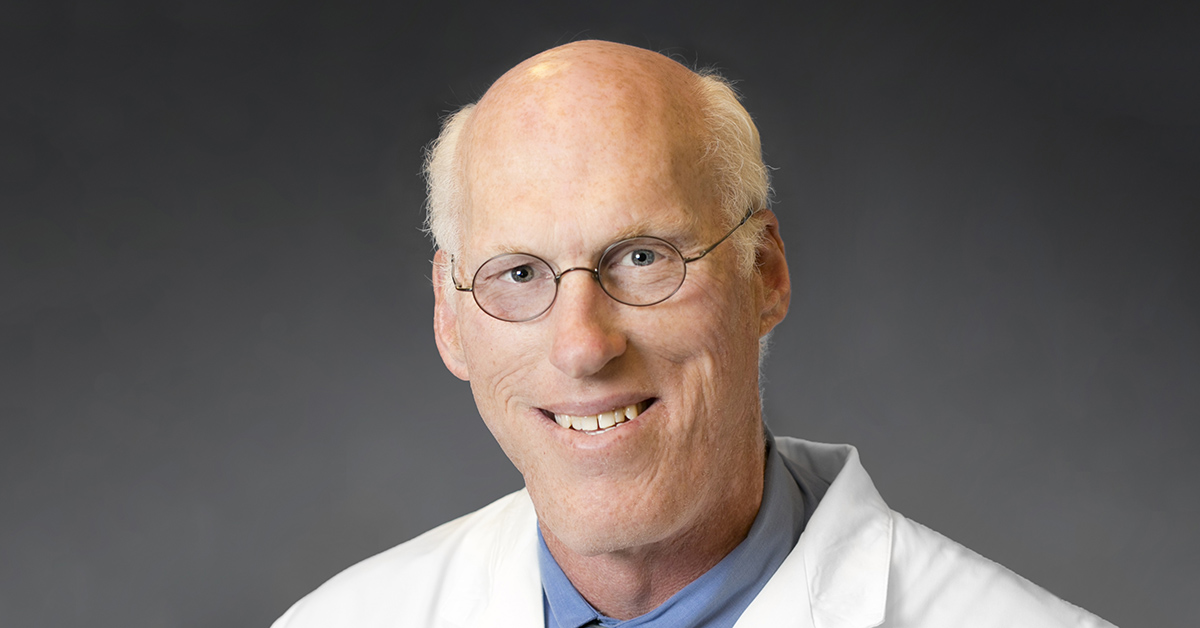The Keto Diet and Cardiovascular Health

It’s February, which means we’re listening to our hearts this month—and yours. And it turns out, your heart might not like the Keto diet.
Many of our New Year’s resolutions are still in full swing, and per usual, countless yearly goals are centered around weight loss. The proof is in the advertising (and the crowds at the gym). But are we keeping our bodies happy when we focus on losing weight alone? Not all diet plans are created equal, and while yours might be good for your waistline, you could be sacrificing other important aspects of your health in the process.
A ketogenic diet—or “the Keto Diet,” as it’s commonly called—is a popular weight-loss plan that involves reducing or nearly eliminating carbs, focusing instead on foods that are high in protein and fat. Dr. Scott Shurmur, a cardiologist with Texas Tech Physicians, has answered questions about this diet over the past couple of years. “The Keto Diet is mostly just a renaming of the Atkins diet—and that is not a diet that's popular among cardiologists,” Dr. Shurmur says. “It's low in refined carbohydrates which, in principal, is a good thing—but it tends to have high amounts of fat, including saturated fat, which is not good for your heart.” In fact, because the fat requirement is so high on this diet plan, participants are typically encouraged to consume a substantial amount of fat with every meal (which explains why so many individuals are putting butter in their coffee).
So what does that look like in terms of cardiovascular health? Long-term, the little data we have does not look promising. “We know that total cholesterol will drop as somebody starts the keto diet, because triglycerides—which are raw fats in the blood—will drop dramatically,” Shurmur says. But the body’s changes do not stop there. “Ultimately things like LDL cholesterol, which is the worst form of cholesterol, actually goes up, and arteries don’t function as well.”

Additionally, while cutting back on carbohydrates might be beneficial for some people, all-or-nothing is not always the best plan. When taking on the keto diet, many individuals are passing on the broccoli and instead choosing foods that are high in saturated fat. Rather than simply swapping out one for the other, Dr. Shurmur reminds us to look at what kind of carbs and fats we consume. For example, fruits and vegetables are an excellent principal source of carbs.
If your only question is “will I lose weight?” Dr. Shurmur says that the Keto Diet will show you the results—but at a cost. “Because of all the saturated fat, the cholesterol level begins to climb. The arteries are in a very unhealthy environment, and plaque deposition actually is likely to increase,” Shurmur explains. “From what little data we have, it suggests that it's really a bad diet for heart health, even though it does promote usually rapid, prompt weight loss.”
While diets that focus on weight loss alone might achieve more visible results, the scale isn’t the only thing to consider. In general, restrictive diets are hardly sustainable. The very nature of losing weight by restriction makes it difficult to keep off the weight. Not to mention, an individual’s health does not directly correlate to a number on a scale. Not just on heart month, but as a rule, we should be mindful about our overall wellness when creating new goals and plans. Your heart is what keeps everything else functional, and taking care of it is always a priority.
Related Stories
Celebrating Veterans: TTUHSC’s General Martin Clay’s Legacy of Service and Leadership
From his initial enlistment in the Army National Guard 36 years ago to his leadership in military and civilian health care management roles, Major General Martin Clay’s career has been shaped by adaptability, mission focus and service to others.
Texas Tech University Health Sciences Center School of Nursing Named Best Accelerated Bachelor of Science in Nursing Program in Texas
The TTUHSC School of Nursing Accelerated Bachelor of Science in Nursing (BSN) program has been ranked the No. 1 accelerated nursing program in Texas by RegisteredNursing.org.
TTUHSC Names New Regional Dean for the School of Nursing
Louise Rice, DNP, RN, has been named regional dean of the TTUHSC School of Nursing on the Amarillo campus.
Recent Stories
The John Wayne Cancer Foundation Surgical Oncology Fellowship Program at Texas Tech University Health Sciences Center Announced
TTUHSC is collaborating with the John Wayne Cancer Foundation and has established the Big Cure Endowment, which supports the university’s efforts to reduce cancer incidence and increase survivability of people in rural and underserved areas.
TTUHSC Receives $1 Million Gift from Amarillo National Bank to Expand and Enhance Pediatric Care in the Panhandle
TTUHSC School of Medicine leaders accepted a $1 million philanthropic gift from Amarillo National Bank on Tuesday (Feb. 10), marking a transformational investment in pediatric care for the Texas Panhandle.
Texas Tech University Health Sciences Center Permian Basin Announces Pediatric Residency Program Gift
TTUHSC Permian Basin, along with the Permian Strategic Partnership and the Scharbauer Foundation, Feb. 5 announced a gift that will fund a new pediatric residency.
